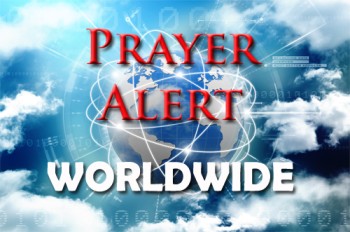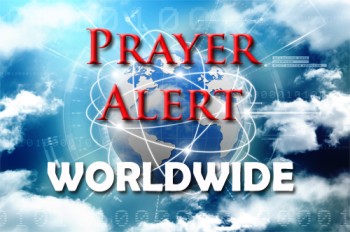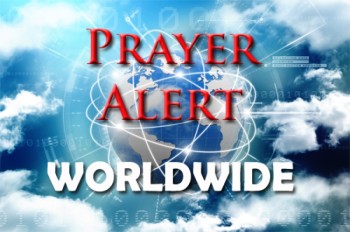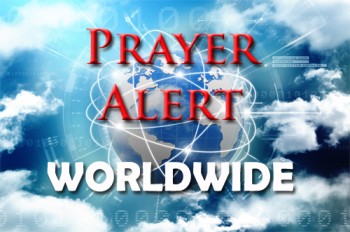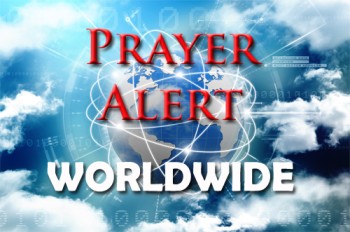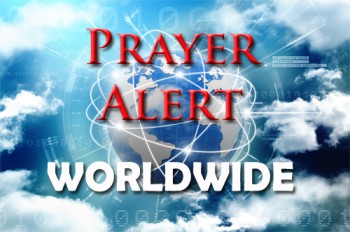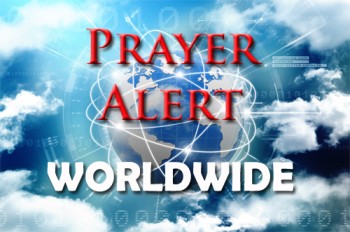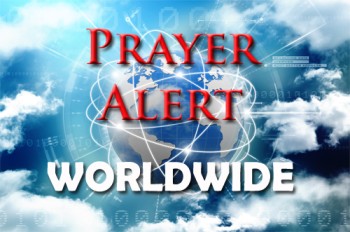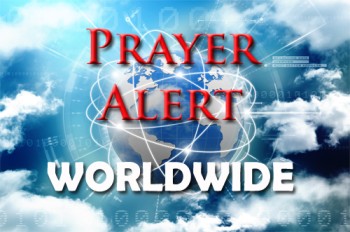Displaying items by tag: conflict
Gaza: infant dies of hypothermia in terrible weather
A humanitarian tragedy is unfolding in Gaza as a Palestinian infant has died from hypothermia amid severe winter conditions and ongoing restrictions on aid. Local health officials reported that two-week-old Mohammed Khalil Abu al-Khair succumbed to extreme cold after families were left without adequate shelter, heating, clothing, or fuel. Israel’s prolonged military campaign has destroyed much of Gaza’s infrastructure, forcing hundreds of thousands to live in tents or damaged buildings unable to withstand storms and freezing temperatures. Recent severe weather has flooded shelters, collapsed structures, and caused further deaths. Humanitarian agencies warn that Israeli restrictions on aid deliveries, including limits placed on UNRWA, are preventing lifesaving supplies from reaching civilians at scale. The child’s death underscores how the denial of basic necessities has turned winter itself into a lethal threat, particularly for children and other vulnerable civilians.
Gaza: Hamas agrees to Qatar’s latest ceasefire proposal
Qatar has emphasized the urgent need for a ceasefire in Gaza, highlighting what it called a ‘positive response’ from Hamas to a new truce proposal. The plan, similar to an earlier US-brokered offer previously accepted by Israel, calls for a sixty-day pause in fighting, the release of some hostages in exchange for hundreds of Palestinian prisoners, expanded humanitarian aid, and negotiations toward a lasting settlement. Israel, however, is maintaining its stance that the war will continue until Hamas disarms and all hostages are freed. Foreign minister Israel Katz says that fear of Israel’s plans to occupy Gaza city is bringing Hamas back to the negotiating table. Meanwhile, conditions in Gaza remain dire. The UN has warned that the minimal aid entering Gaza is far from sufficient, with hunger-related deaths increasing. Officials blame Israeli restrictions on humanitarian supplies, warning of imminent famine. Breaking news: Israel is calling up 60,000 reservists in preparation for its planned invasion of Gaza. See
Algeria: president offers to mediate between Malian authorities and rebel Tuaregs
Algeria’s president, Abdelmadjid Tebboune, has offered to mediate between Mali’s military-led government and northern rebel groups, including Tuareg and Arab nationalists, amid escalating regional tensions. However, he clarified that he would only step in if formally invited by Mali. His statement comes after Mali's junta withdrew from a previous Algeria-brokered peace deal and replaced UN peacekeepers with Russian Africa Corps mercenaries, formerly Wagner. Algeria has refused to tolerate mercenary forces on its 1,400 km shared border, despite its own longstanding ties with Russia. Mutual accusations have intensified, with both countries alleging drone strikes and cross-border incursions. Mali has accused Algeria of harbouring militants who conduct attacks from Algerian soil, a claim Algiers denies. The withdrawal of the UN’s MINUSMA peacekeeping force in 2023 has left a security vacuum in northern Mali, now filled by armed factions and foreign operatives. Tebboune’s call for diplomacy reflects Algeria’s concern over instability and the threat of wider conflict spreading across the Sahel region.
Israel bombs Syrian forces attacking a Druze area, then Damascus
Deadly violence has erupted in Suweida between Druze militias and Bedouin tribes, resulting in at least two hundred deaths, including children and civilians. The fighting, which began after the abduction of a Druze merchant, quickly escalated, prompting Syria's interim government to send troops into the previously autonomous Druze region. Israel launched airstrikes against these troops, claiming they were targeting the Druze, with whom Israel shares strong ties. The strikes drew international criticism and further inflamed tensions. Despite a ceasefire declared by Syria’s defence minister, reports emerged of government forces bombing Suweida, executing Druze civilians and looting homes. A Druze spiritual leader initially called for cooperation with authorities, but later urged resistance. Syria accused Israel of full responsibility for the violence, while the USA urged Israel to halt its strikes. The Israeli military has already carried out hundreds of strikes across Syria to destroy the country's military assets since the fall of the Assad regime. Breaking news: Israel has now bombed Damascus, targeting the presidential palace and the ministry of defence building. See
Gaza: Trump says Israel has agreed to a ceasefire
Donald Trump has announced that Israel has agreed to the ‘necessary conditions’ for a sixty-day ceasefire in Gaza, pending Hamas’s approval. While the details remain vague, Trump said that the USA, along with Qatari and Egyptian mediators, will work toward ending the war. Hamas stated it is open to a deal if it guarantees an end to hostilities, the withdrawal of Israeli forces, and humanitarian relief. Israel’s key demand remains the release of most, if not all hostages held in Gaza. Hamas representatives in Cairo are reportedly negotiating, though insiders describe the talks as stagnant. Disagreements persist over the absence of a guarantee for permanent peace and continued military presence in Gaza. Meanwhile, the conflict continues: Israel has ordered evacuations in northern Gaza ahead of increased military action, and at least twenty Palestinians were killed in an Israeli air strike on a seafront café on 30 June. A previous attempt at a ceasefire failed in March. Trump's upcoming meeting with Netanyahu may prove decisive.
India / Pakistan: ceasefire, with conflicting claims of ‘victory’
Following a deadly attack in Indian-administered Kashmir on 22 April, military tensions between India and Pakistan escalated rapidly, culminating in cross-border missile strikes and drone attacks. The conflict nearly led to all-out war, but a US-announced ceasefire on 10 May halted the fighting. Both nations claim victory: India points to deep strikes into Pakistan’s Punjab region, while Pakistan touts the downing of Indian jets, confirmed by foreign sources. Analysts suggest that both sides gained and lost strategically. India achieved a rare reach into Pakistan’s heartland for the first time since 1971, while Pakistan successfully internationalised the Kashmir issue, welcoming external mediation. The ceasefire’s legitimacy is disputed: India insists it was bilateral, while Pakistan credits the USA. Talks between military officials have followed, but Narendra Modi has warned the ceasefire is only a ‘pause’. It would not take much for hostilities to flare up again.
Colombia: over 50,000 displaced by violence
A baby girl born in Tibu, Colombia, on 11 February was just five days old when her family fled violence, joining over 55,000 displaced by escalating conflict. FARC dissidents and the National Liberation Army (ELN) have clashed in Catatumbo since January, forcing families to abandon homes amid kidnappings and attacks. The UN calls it Colombia’s largest mass displacement from a single event. In Cucuta, 120 km away, displaced families face uncertainty. Aid efforts struggle with limited resources as shelters and local hotels fill up. Farmers have left crops and livestock, worsening food shortages. Meanwhile, the violence exposes flaws in president Gustavo Petro’s ‘total peace’ policy, as negotiations with rebel groups repeatedly collapse. The state’s slow response to building infrastructure and curbing the coca trade has fuelled instability, leaving thousands to wonder when they can return home.
Sudan: satellite images show use of advanced weaponry in civil war
Satellite images have revealed drone activity at Sudan’s Nyala airport, an RSF stronghold in South Darfur. These developments highlight the continued influx of advanced weaponry fuelling Sudan’s brutal conflict. The RSF, engaged in a power struggle with Sudan’s army since April 2023, has used Nyala as a base for its offensive on al-Fashir and attacks on civilians in the famine-stricken Zamzam camp. Analysis suggests the RSF is using Chinese-made CH-95 drones; the Sudanese army has accused the UAE of supplying them. Both factions have used drones in airstrikes, causing widespread destruction. Despite a UN arms embargo, foreign weapons continue to flow into the region, worsening the humanitarian crisis. Meanwhile, many relief organisations are withdrawing from the country, and up to 80% of the emergency food kitchens are closing. See
Gaza: future of ceasefire in the balance
The Gaza ceasefire agreement between Israel and Hamas, in effect since 19 January, is at risk of collapsing. Efforts by Egypt and Qatar to mediate continue, as a senior Hamas delegation arrived in Cairo to salvage the truce. Benjamin Netanyahu has warned that if hostages are not released by Saturday, intense military operations will resume. The situation has been further complicated by Donald Trump's recent proposal to remove Gaza’s Palestinian residents, which has emboldened Israel’s far-right leaders. Some Israeli ministers are now demanding a total military takeover of Gaza. Meanwhile, Israeli security officials argue that breaking the ceasefire would endanger hostages still held in Gaza. Families of captives and displaced Gazans fear renewed conflict. Breaking news: Hamas has said it will release three hostages on 15 February as agreed, although earlier it had threatened to cancel the ceasefire, claiming that Israel had failed to fulfil key commitments.
DRC: fighting between army and Rwandan-backed rebels
Fighting persists between the Congolese army and M23 rebels in Goma, in the east of the Democratic Republic of Congo (DRC), leaving control of the city uncertain. The M23, which according to the UN is supported by thousands of Rwandan soldiers, claims to hold the provincial capital, though Congolese authorities dispute this. Rebel patrols have been reported in western Goma, while Congolese forces are reportedly guarding the airport. With independent access to parts of the city restricted and communication infrastructure disrupted, reliable updates are scarce. The fighting has forced thousands of civilians to flee. The volatile region is rich in minerals that are critical to much of the world’s technology. Kenyan president William Ruto, describing the situation as ‘very complicated’, said that it could only be solved diplomatically: see
